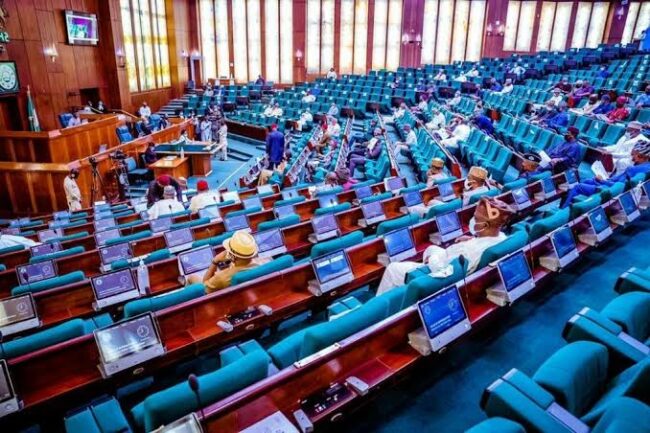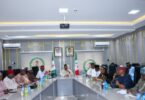House of Representatives has emphasised the urgent need to amend the Nigerian Maritime Administration and Safety Agency (NIMASA) Act of 2007 to better leverage Nigeria’s maritime potential.
During a recent presentation of a book titled ‘Nigeria’s Shipping Policy and Maritime Trade up to the Early 21st Century’ by Edmund Chilaka, the House Committee on Maritime Safety, Education, and Administration highlighted the necessity of revising the 17-year-old NIMASA Act.
Represented by Rep. Adesola Adedayo Samuel (APC, Lagos), the Committee Chairperson, Rep. Khadijah Bukar Abba Ibrahim Waziri (APC, Yobe), proposed targeted amendments rather than a complete repeal and re-enactment.
Several key areas for amendment as outlined by Rep. Adedayo include: Modernisation of Terms which includes Updating terminology such as replacing “Free On Board (FOB)” with “Cost, Insurance, and Freight (CIF)” to align with contemporary practices;
“Introduction of Open International Registry which covers advocating for a more beneficial open registry system over the current closed registry;
“Enhanced Prosecutorial Powers which covers expanding enforcement capabilities for better compliance with Clause 59;
“Defining the functions of Coast Guards and specifying board appointments, similar to the structure for the CEO and Executive Directors.
“Financial Independence which covers Strengthening Clause 17, subsection 7 to enhance financial autonomy;
“Interagency Collaboration which includes Improving coordination and avoiding duplication of functions among government agencies.”
Stakeholders and experts at the event emphasised the critical need to increase cargo allocations for Indigenous shipowners. They argued that such measures would support sustainable local shipping operations and strengthen Sections 35-38 of the NIMASA Act concerning the Cabotage Vessel Financing Fund (CVFF).
This advocacy aims to revitalise dormant sectors of the Marine and Blue Economy and mitigate capital flight, which currently sees an estimated $9 billion annually in freight costs paid to foreign shipping lines.
Participants emphasised the need for clear cargo reservation policies and maintaining a percentage of cargo for domestic shipping companies.
They also called for a more proactive role for NIMASA in international trade and cargo management.
Despite the focus on NIMASA’s legislation, officials from the agency were notably absent from the event.
In alignment with its Legislative Agenda on Economic Growth and Development (Agenda 4), the 10th House of Representatives remains committed to shaping Nigeria’s economic trajectory and encouraging the development of a comprehensive National Blue Economy Strategy to ensure sustainable growth in the maritime sector.
ALSO READ THESE TOP STORIES FROM TheWitness







